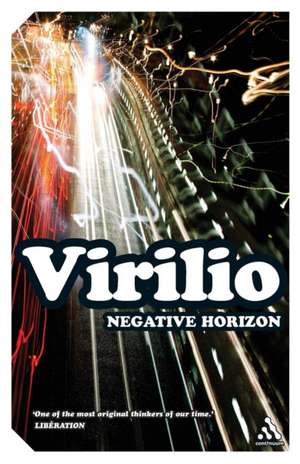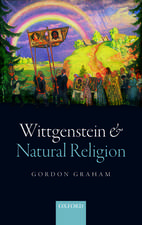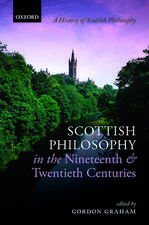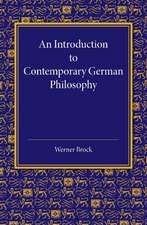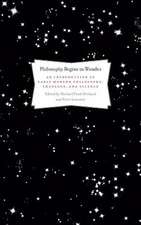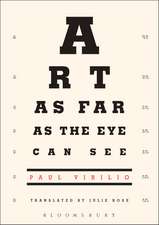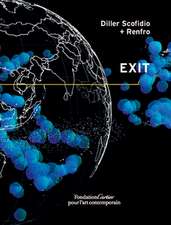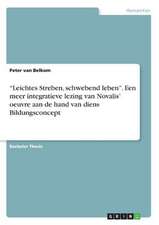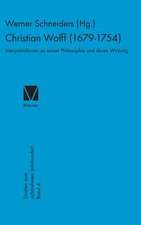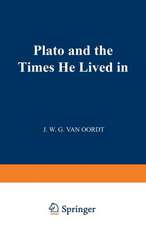Negative Horizon: An Essay in Dromoscopy: Continuum Impacts
Autor Paul Virilio Traducere de Michael Degeneren Limba Engleză Paperback – iun 2008
Din seria Continuum Impacts
-
 Preț: 319.69 lei
Preț: 319.69 lei - 45%
 Preț: 107.61 lei
Preț: 107.61 lei - 21%
 Preț: 226.47 lei
Preț: 226.47 lei -
 Preț: 217.38 lei
Preț: 217.38 lei - 45%
 Preț: 302.09 lei
Preț: 302.09 lei - 45%
 Preț: 164.09 lei
Preț: 164.09 lei - 43%
 Preț: 135.85 lei
Preț: 135.85 lei - 43%
 Preț: 122.06 lei
Preț: 122.06 lei - 44%
 Preț: 96.30 lei
Preț: 96.30 lei - 43%
 Preț: 302.49 lei
Preț: 302.49 lei - 47%
 Preț: 125.86 lei
Preț: 125.86 lei - 43%
 Preț: 118.15 lei
Preț: 118.15 lei - 39%
 Preț: 190.31 lei
Preț: 190.31 lei - 43%
 Preț: 127.33 lei
Preț: 127.33 lei - 18%
 Preț: 155.83 lei
Preț: 155.83 lei - 46%
 Preț: 183.95 lei
Preț: 183.95 lei - 44%
 Preț: 194.63 lei
Preț: 194.63 lei - 49%
 Preț: 119.86 lei
Preț: 119.86 lei - 44%
 Preț: 189.29 lei
Preț: 189.29 lei - 43%
 Preț: 120.96 lei
Preț: 120.96 lei - 47%
 Preț: 136.27 lei
Preț: 136.27 lei - 38%
 Preț: 142.86 lei
Preț: 142.86 lei - 42%
 Preț: 143.88 lei
Preț: 143.88 lei - 43%
 Preț: 1111.69 lei
Preț: 1111.69 lei - 42%
 Preț: 125.82 lei
Preț: 125.82 lei - 27%
 Preț: 227.66 lei
Preț: 227.66 lei - 43%
 Preț: 126.43 lei
Preț: 126.43 lei - 19%
 Preț: 194.36 lei
Preț: 194.36 lei - 18%
 Preț: 196.56 lei
Preț: 196.56 lei - 45%
 Preț: 103.07 lei
Preț: 103.07 lei - 43%
 Preț: 113.52 lei
Preț: 113.52 lei - 43%
 Preț: 122.13 lei
Preț: 122.13 lei - 45%
 Preț: 159.73 lei
Preț: 159.73 lei
Preț: 118.61 lei
Preț vechi: 219.50 lei
-46% Nou
Puncte Express: 178
Preț estimativ în valută:
20.99€ • 24.61$ • 18.43£
20.99€ • 24.61$ • 18.43£
Carte tipărită la comandă
Livrare economică 06-20 februarie 26
Preluare comenzi: 021 569.72.76
Specificații
ISBN-13: 9781847063069
ISBN-10: 1847063063
Pagini: 224
Ilustrații: black & white illustrations
Dimensiuni: 129 x 198 x 17 mm
Greutate: 0.25 kg
Editura: Bloomsbury Publishing
Colecția Continuum
Seria Continuum Impacts
Locul publicării:London, United Kingdom
ISBN-10: 1847063063
Pagini: 224
Ilustrații: black & white illustrations
Dimensiuni: 129 x 198 x 17 mm
Greutate: 0.25 kg
Editura: Bloomsbury Publishing
Colecția Continuum
Seria Continuum Impacts
Locul publicării:London, United Kingdom
Caracteristici
Paul Virilio is a well-known and provocative theorist of contemporary culture and society with an international cult following.
Cuprins
Acknowledgements Translator's Introduction: Seven Minutes Foreword First Part The Metapsychosis of the Passenger The Great Vehicle Second Part The Aesthetics of Disappearance From the Site of the Election to the Site of the Ejection Third Part Dromoscopy The Light of Speed Fourth Part The Negative Horizon The Driving Within Fifth Part The Politics of Disappearance The Strategy of the Beyond Notes Index
Recenzii
'One of the most original thinkers of our time.' Liberation
'Virilio writes on the edge of physics, philosophy, politics and urbanism.' New Statesman
'Virilio writes on the edge of physics, philosophy, politics and urbanism.' New Statesman
